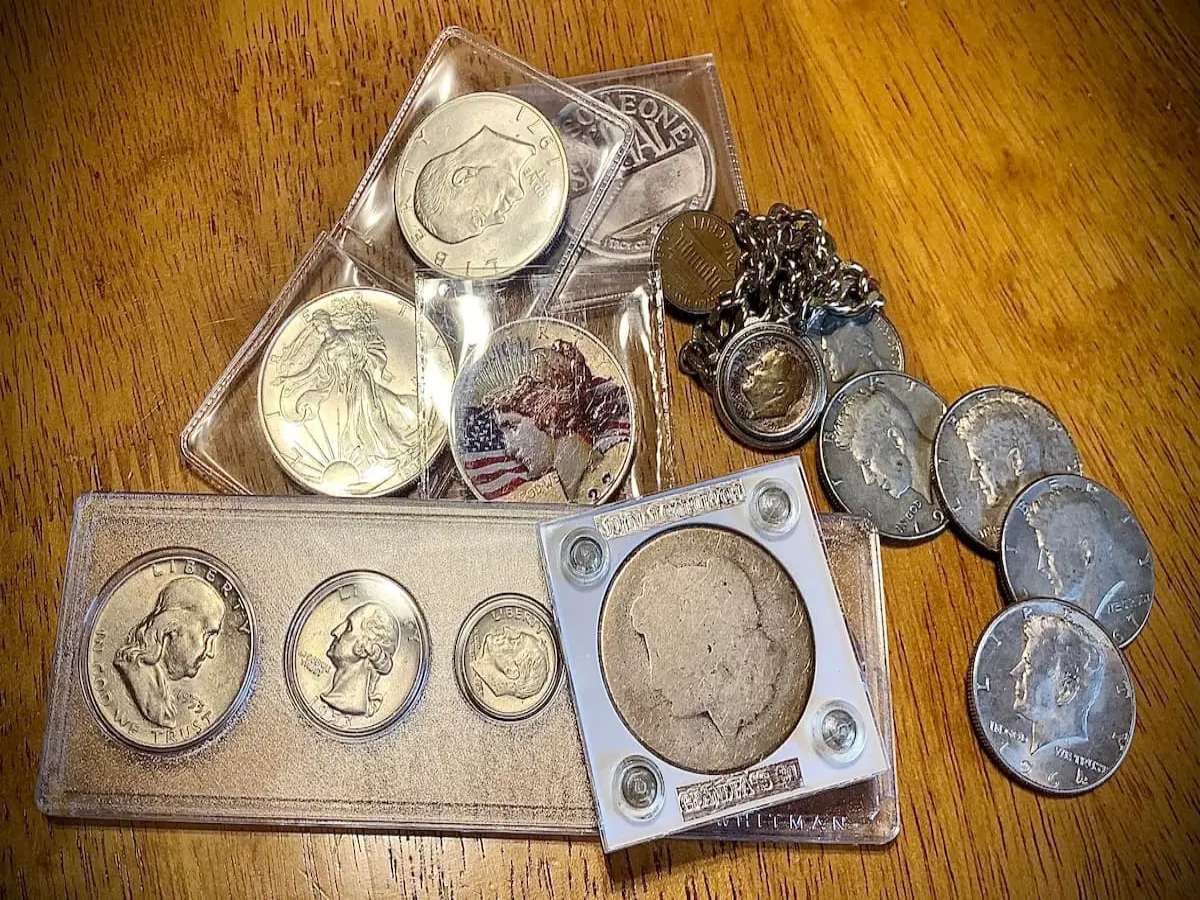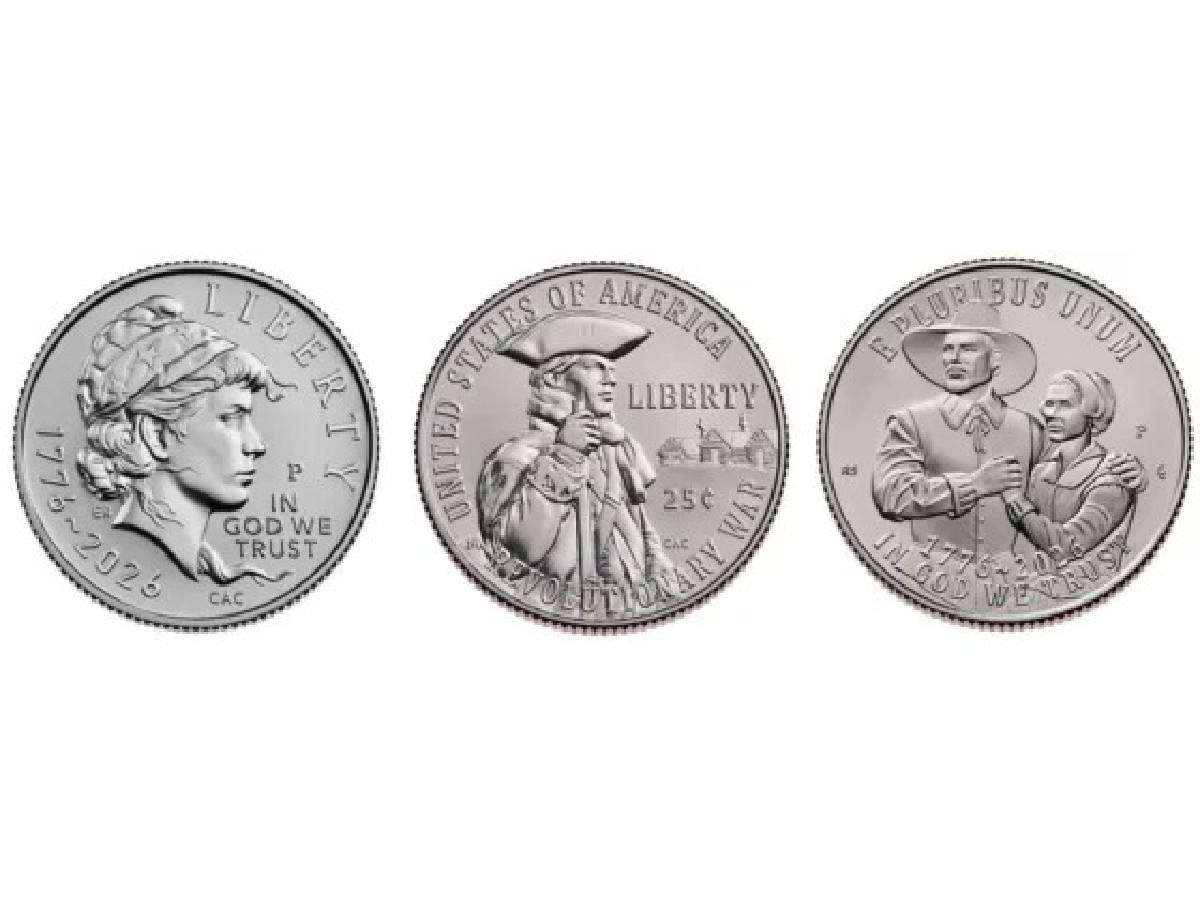I’ve written much about how to buy silver coins, the value of silver coins, and where to buy and sell silver.
But today I’m going to talk about the reasons NOT to buy silver.

Reasons Not To Buy Silver
In general, I feel that buying silver coins, rounds, or bars and investing a small portion of your money in bullion is smart.
But there are always pros and cons to just about everything. This includes the downsides when you buy silver.
So, I wanted to share with you some of the disadvantages to buying silver.
This article isn’t meant to discourage you from buying bullion. I own some and I think it would behoove you to have some, too. But you should know the full story behind owning silver and better understand what to expect when you buy silver coins or bars for yourself.
#1 – Silver prices can go down.
OK, let’s get one thing straight here off the bat: ALL bullion metals go up and down in price — not just silver. However, silver is a particularly volatile precious metal. That means silver prices tend to fluctuate win bigger swings than other precious metals do.
But I think the bigger point I want to make here is that silver prices can go down.
Why do I say this? Because a lot of people — and I mean a LOT of them — believe that silver prices are supposed to always go up.
They often hold this belief because they just don’t know how precious metal values work and believe that because silver is a valuable metal that it should always go up in price. In other cases, people who buy silver are misinformed by unscrupulous salespeople who suggest (even if they don’t directly assert this) that silver is a guaranteed investment that will always go up in value. And this isn’t true at all.
All we need to do is look at what happened in the early 1980s and mid-2010s, when silver prices rapidly fell after quick run-ups in value.
Having said that, the price of silver has generally outpaced inflation over a long period of time. But don’t expect silver prices to always go up. It’s best to think of silver not so much as an investment but rather as insurance against inflation and the shrinking value of the dollar.
#2 – Storage & security can be tough.
Here’s another reason not to buy silver that really applies to all types of precious metals — but it’s especially noteworthy with silver.
Why? Because of all the most commonly traded precious metals, silver has the lowest value in price, gram for gram.
If the value of silver is 80:1 against gold, that means you’ll need 80 times the volume of silver to achieve the same amount of value, in dollars or other units of currency, you’d get with gold.
In that scenario, if you want $10,000 in precious metals, you’ll need 80 times more space to store the silver that achieves that value threshold versus making that same investment goal with gold.
For those with plenty of vault storage space, that may be a non-issue. But if space is tight, storage requirements could prove to be a real downside when choosing silver.
#3 – It’s not always easy to sell silver.
I’ll bet you’ve seen plenty of Buy Gold signs at malls and shopping centers around the country.
But how many Buy Silver signs have you’ve seen?
I’m betting far fewer. That’s not to say you’ll necessarily have a difficult time selling silver coins and bars. But it’s not always as easy to sell silver as it is gold.
Yes, you can sell silver coins and bars to coin dealers and bullion brokers. But these merchants are much harder to find than the people on every other street corner offering to buy gold.
Also, you want to be careful selling your silver to jewelers and pawn shops — you may not always get the best price for your precious metals there.
#4 – You’ll pay markups over silver prices.
If you’re a retail customer, you won’t be able to buy precious metals for the actual price of the metal itself. You’re going to pay a premium, or markup over the price of the metal to buy it.
Why? Because the merchant selling it has to pay for business expenses while making a little bit of profit, too. This is certainly the case when buying gold and silver coins and bars.
You usually can’t buy silver or gold coins or bars without paying a small percentage in price higher than the spot price (the value of the precious metal inside that item).
The downside to buying silver is that the whitish precious metal is often relatively higher than what you’ll pay for buying gold.
#5 – Silver can get damaged or destroyed.
One of the major risks of owning a tangible asset like silver is that it’s something that can get damaged or even destroyed.
Of course, this is why insurance is a good thing. But not many insurance companies cover things like silver bullion.
So, this leaves you with relatively few options for finding an insurance company that would protect the value of your silver.
And what if you did find one? Well, you’ve got to pay for that insurance… And at what point would paying to insure your silver cut into any profits you might make from owning it and, more importantly, selling it?
#6 – You don’t earn income from silver until you sell it.
Some investments (like certain kinds of stocks and mutual funds) pay dividends or income during the time you’re holding it. You can even earn interest just from putting your money into a basic savings account at your bank, credit union, or other type of financial institution.
But what about silver? Nope, nada — you pay to buy silver coins or bars, and then you make money from them only if you sell them.
Now, I don’t think there are many folks here who believe that silver is going to actually earn any money for people while it’s sitting in the vault. But I put this disadvantage to buying silver here more for the sake of spelling out ALL of the most critical downsides of buying silver.
This video highlights the top 5 reasons NOT to buy silver:




